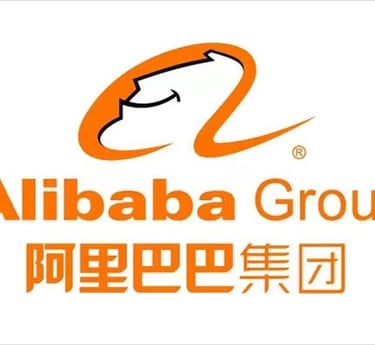Navigating Alibaba: Legitimacy, Alternatives, and Sample Ordering Explained
SOURCING AGENT
7/23/20245 min read


In today’s global market, Alibaba has become a major player for businesses and consumers seeking affordable products and suppliers. But with its extensive reach and wide array of options, questions about its legitimacy and safety often arise. Additionally, those exploring Alibaba might also be interested in alternatives or understanding the sample ordering process. This guide will delve into these aspects, offering insights into Alibaba’s reliability, exploring other similar platforms, and explaining how to navigate sample orders effectively.
Is Alibaba Legitimate?
Alibaba, founded in 1999 by Jack Ma, is a leading global e-commerce platform that connects buyers with suppliers primarily from China. It serves as a massive marketplace where businesses can source products at competitive prices. But the question remains: is Alibaba legitimate?
1. Alibaba’s Business Model
Alibaba operates primarily as a B2B (business-to-business) marketplace, which means it connects manufacturers and suppliers with companies seeking to buy in bulk. It offers various services, including product listings, trade assurance, and escrow payments, designed to facilitate transactions between buyers and sellers.
2. Trust and Security Measures
Alibaba has implemented several measures to ensure security and build trust among users. These include:
Trade Assurance: A free service that protects orders and ensures suppliers adhere to agreed terms.
Escrow Payments: Payments are held by Alibaba until the buyer confirms receipt of the goods.
Verification Services: Suppliers undergo a verification process to establish their credibility.
3. Common Concerns
While Alibaba takes steps to ensure a safe trading environment, buyers should be cautious:
Scams and Fraud: Some users report encountering fraudulent sellers. It’s essential to research suppliers thoroughly and use Alibaba’s verification tools.
Product Quality: The quality of products can vary. Ordering samples and reading reviews can mitigate risks.
Alibaba vs. AliExpress: Understanding the Difference
Alibaba and AliExpress are often mentioned together, but they cater to different needs. Understanding these differences can help you choose the right platform for your purchase.
1. Alibaba
Business Model: B2B
Target Users: Businesses looking to buy in bulk
Product Range: Broad, often including custom products
Order Quantity: Typically large, wholesale quantities
Pricing: Lower prices for bulk orders
2. AliExpress
Business Model: B2C (business-to-consumer)
Target Users: Individual consumers
Product Range: Wide range of ready-to-ship products
Order Quantity: Small quantities, suitable for individual purchases
Pricing: Generally higher per unit compared to bulk orders on Alibaba
Sites Like Alibaba: Exploring Alternatives
If Alibaba doesn’t meet your needs or you’re seeking other options, several platforms offer similar services. Here are some notable alternatives:
1. GlobalSources
Overview: A B2B platform connecting buyers with verified suppliers primarily from Asia.
Features: Offers product catalogs, supplier verification, and trade shows.
Best For: Businesses looking for verified suppliers and sourcing products from Asia.
2. Made-in-China
Overview: A B2B marketplace focused on connecting global buyers with Chinese manufacturers.
Features: Supplier verification, product categories, and trade assurance services.
Best For: Businesses seeking competitive prices on a wide range of products from China.
3. DHgate
Overview: An online marketplace that connects buyers with Chinese wholesalers and manufacturers.
Features: Low minimum order quantities and buyer protection services.
Best For: Small to medium-sized businesses looking for bulk purchasing options.
4. ThomasNet
Overview: A platform for finding North American manufacturers and suppliers.
Features: Extensive supplier directory, product categories, and industry-specific search filters.
Best For: Businesses seeking local manufacturing and sourcing solutions.
5. TradeIndia
Overview: A B2B platform connecting global buyers with Indian suppliers.
Features: Product catalogs, supplier directories, and trade leads.
Best For: Businesses looking to source products from India.
Cheap Websites Like AliExpress: Affordable Alternatives
If you’re seeking affordable alternatives to AliExpress, consider the following websites that offer competitive pricing and a wide range of products:
1. Banggood
Overview: An online retailer offering a variety of products, including electronics, clothing, and home goods.
Features: Competitive pricing, frequent discounts, and global shipping.
Best For: Consumers looking for budget-friendly options and diverse product categories.
2. Gearbest
Overview: An e-commerce platform specializing in electronics, gadgets, and lifestyle products.
Features: Regular promotions, customer reviews, and a loyalty program.
Best For: Tech enthusiasts and bargain hunters.
3. LightInTheBox
Overview: An online retailer offering a range of products, including apparel, electronics, and home goods.
Features: Affordable pricing, frequent sales, and international shipping.
Best For: Shoppers looking for deals on a variety of products.
4. Romwe
Overview: A fashion-focused online retailer offering trendy clothing and accessories.
Features: Affordable fashion, regular promotions, and worldwide shipping.
Best For: Fashion-conscious consumers seeking budget-friendly clothing.
Ordering Samples from Alibaba: A Step-by-Step Guide
Ordering samples is a crucial step when sourcing products from Alibaba. It helps you evaluate the quality of goods before committing to a larger order. Here’s how to navigate the sample ordering process:
1. Find the Right Supplier
Search for suppliers based on your product needs. Use Alibaba’s filtering tools to identify verified and high-rated suppliers.
2. Contact Suppliers
Reach out to potential suppliers with specific queries about the product, including pricing, minimum order quantities, and sample availability. Clearly state your interest in ordering a sample.
3. Request a Sample
Once you’ve identified a suitable supplier, request a sample of the product. Be prepared to pay for the sample, as many suppliers charge for this service.
4. Review the Sample
Examine the sample for quality, design, and functionality. Compare it with your product requirements and specifications.
5. Provide Feedback
Share your feedback with the supplier. If the sample meets your expectations, you can proceed with a larger order. If not, you may need to adjust your specifications or find a different supplier.
Why Is Alibaba So Cheap?
Alibaba’s pricing structure can be surprisingly low, and several factors contribute to this phenomenon:
1. Bulk Purchasing
Alibaba’s B2B model allows buyers to purchase products in large quantities, leading to lower per-unit costs. Bulk purchasing reduces production and shipping costs, which can be passed on to buyers.
2. Direct Manufacturer Access
Alibaba connects buyers directly with manufacturers, eliminating intermediaries and their associated markups. This direct access can result in more competitive pricing.
3. Competitive Market
The platform’s competitive nature drives prices down. Suppliers vie for business by offering lower prices and better deals.
4. Low Production Costs
Many products on Alibaba are manufactured in countries with lower production costs. These savings contribute to the lower prices seen on the platform.
Is Alibaba Safe to Buy From?
Safety concerns are valid when using any online marketplace. Here are some tips to ensure a safe purchasing experience on Alibaba:
1. Use Alibaba’s Safety Features
Trade Assurance: Utilize Alibaba’s Trade Assurance service to protect your orders and ensure that suppliers meet their obligations.
Payment Methods: Opt for secure payment methods, such as credit cards or Alibaba’s escrow services.
2. Research Suppliers
Supplier Verification: Check if suppliers are verified and review their ratings and feedback.
Product Reviews: Read reviews from other buyers to gauge the reliability of the products and supplier.
3. Communicate Clearly
Product Specifications: Clearly communicate your product specifications and requirements to avoid misunderstandings.
Order Terms: Ensure that all terms, including pricing, delivery, and quality standards, are agreed upon before placing an order.
4. Order Samples
Evaluate Quality: Order samples to assess the quality of products before committing to a larger purchase.
Conclusion
Alibaba has revolutionized the way businesses and consumers source products globally. Its vast marketplace offers opportunities for finding affordable goods and reliable suppliers. However, navigating the platform requires diligence and caution. Understanding Alibaba’s legitimacy, exploring alternatives, and following best practices for ordering samples can enhance your sourcing experience.
Whether you’re considering Alibaba or exploring other platforms, staying informed and cautious will help you make confident and successful purchasing decisions.


